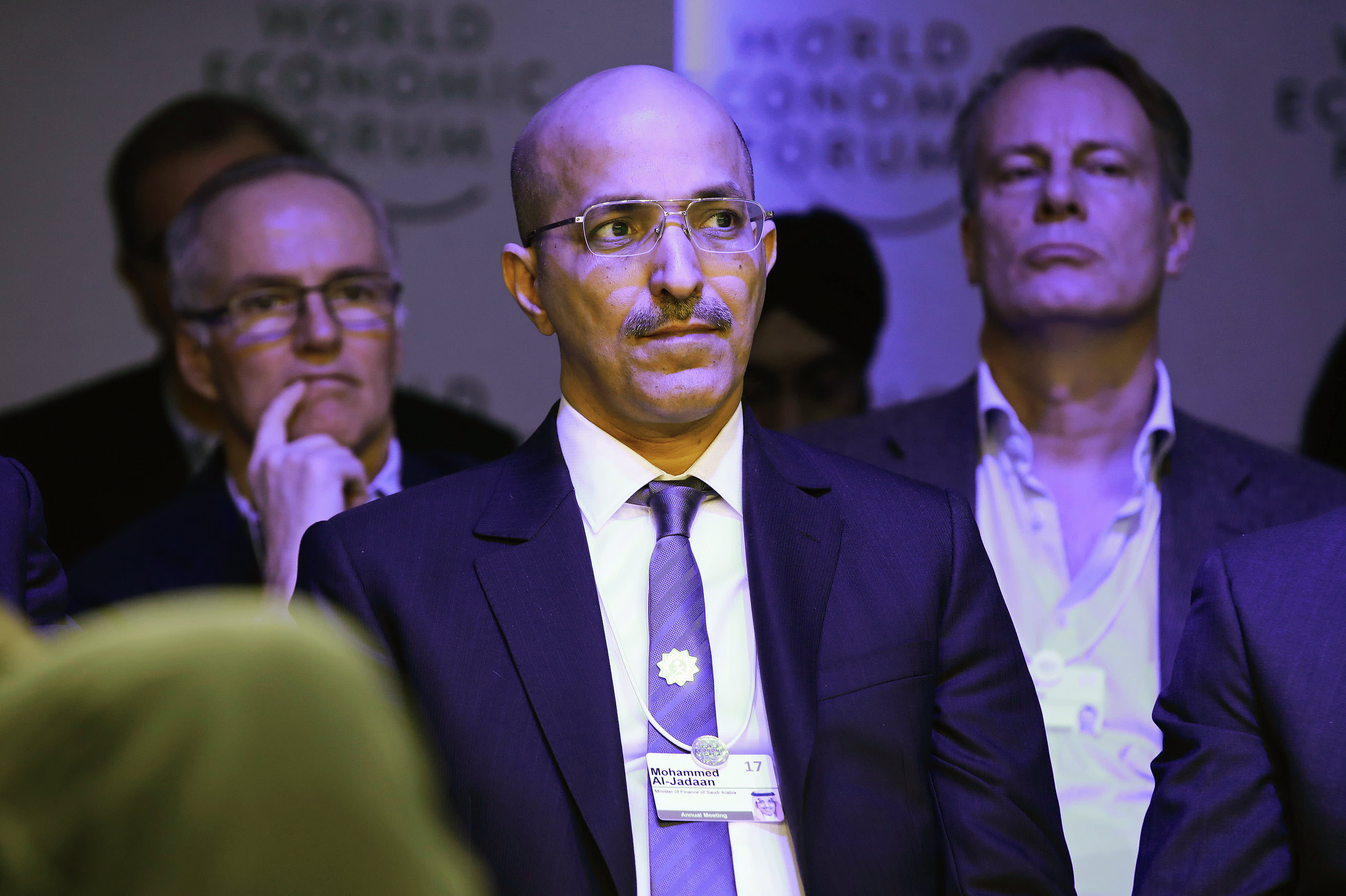The finance minister of Saudi Arabia rejected claims that the kingdom is slowly running out of money, saying that it's in a better financial position that many other nations across the globe.
"No we are not running out of money," Mohammed al-Jadaan told CNBC's Hadley Gamble when asked about recent perceptions regarding its reserves.
In November, the former chief of the CIA David Petraeus highlighted the issue, telling CNBC that he believed Saudi Arabia is "gradually running out of money," aiming his comments at the country's sovereign wealth fund.
Saudi Arabia does not openly publish the amount of assets it holds within its wealth fund, known as the Public Investment Fund (PIF). The Institute of International Finance estimated in a report in June that the kingdom has assets worth around $300 billion with roughly a quarter of its holdings overseas. The Sovereign Wealth Fund Institute puts the figure closer to $320 billion.
Speaking to CNBC in Riyadh after Monday's budget announcement, Al-Jadaan stated that the kingdom currently held the third-largest pot of foreign cash reserves in the world. He added that it had "significant funds" and a "lot of assets" were at the country's disposal.
"Unlike so many other countries we also have government reserves, deposits, with the central bank that other governments don't have," he said.
"That stands today at about 500 billion Saudi riyals, short of 500 billion Saudi riyals," he added, saying that the country's aim was to build the reserves as it controlled its expenditure.
Budget 2020
Saudi Arabia announced a budget of 1.02 trillion riyals ($272.00 billion) for next year, with Al-Jadaan confirming what he told media in October that revenues would fall from 917 billion riyals expected this year to 833 billion riyals in 2020, widening the budget deficit to to 187 billion riyals.
Real growth in its gross domestic product, which is adjusted for inflation, was expected at 2.3% in 2020, a statement said.
The budget news comes ahead of one of the biggest economic events in the kingdom's history: On Wednesday shares of its national oil company Saudi Aramco will begin trading on the local stock exchange in what will be the largest IPO in history, priced at $25.6 billion.
Saudi Crown Prince Mohammed bin Salman said in 2017 that half of the revenues from Aramco's listing could be put to work inside the country by the Public Investment Fund, which is working to diversify the oil-dependent economy as part of Vision 2030.
The partial listing of the state oil company Saudi Aramco was hoped to bolster the country's balance sheet but some estimates suggest the final size of the initial public offering has disappointed.
Al-Jadaan said that while he still believed Aramco is worth in excess of $2 trillion "the price determined by the market is the price."
A number of commodities forecasters expect international benchmark Brent crude to edge up to $70 per barrel by the end of 2020. Still, this won't be enough for Saudi Arabia, which will have to tighten fiscal policy further to offset the widening deficit, according to London-based consultancy Capital Economics.
OPEC+ on Friday agreed to cut crude production by a further 500,000 bpd through to March 2020, a figure deeper than what most analysts expected and the brunt of which will be taken on by Saudi Arabia, the alliance's largest producer.
"The immediate impact on GDP in Saudi Arabia will come from weaker growth in the oil sector," Capital Economics said in a weekend note. "The impact of the new oil output quota could reduce Saudi GDP growth by as much as 0.6%-pts in Q1… And the downside risks to our 2020 GDP growth forecast, of 2.3%, are now skewed to the downside."
—CNBC's Holly Ellyatt contributed to this article.
